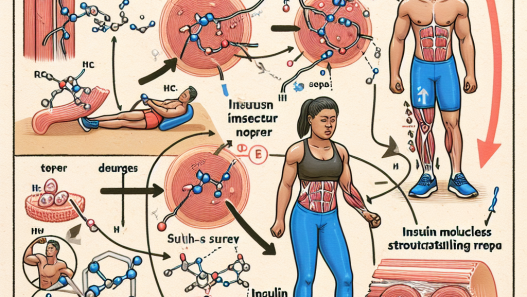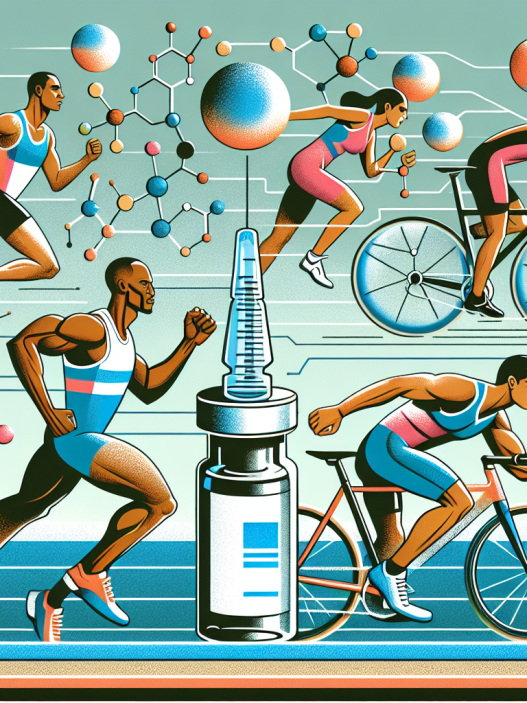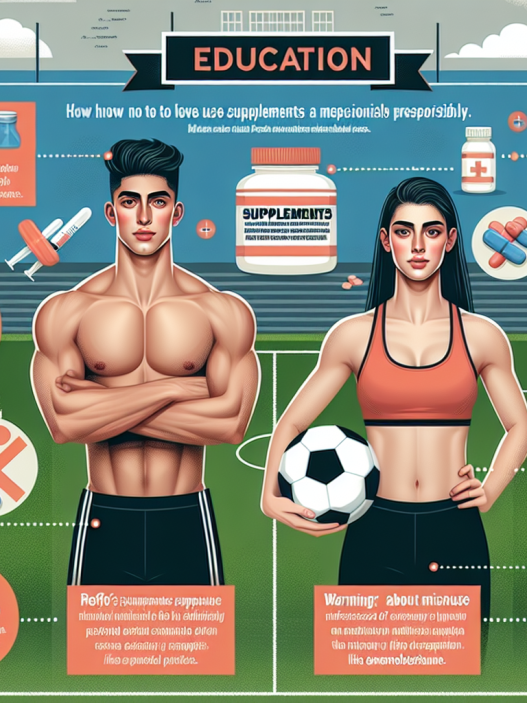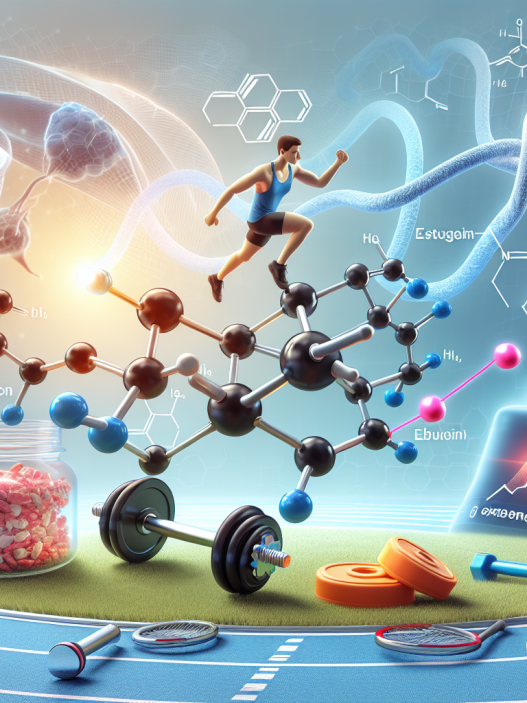-
Table of Contents
Somatropin: The Role of Growth Hormone in Sports
Sports performance is a highly competitive field, with athletes constantly seeking ways to improve their physical abilities and gain an edge over their opponents. While proper training, nutrition, and rest are essential for athletic success, some athletes turn to performance-enhancing drugs to gain an advantage. One such drug that has gained popularity in the world of sports is somatropin, a synthetic form of human growth hormone (hGH). In this article, we will explore the role of somatropin in sports and its potential benefits and risks.
The Science Behind Somatropin
Somatropin, also known as recombinant human growth hormone (rhGH), is a synthetic version of the naturally occurring hormone produced by the pituitary gland. It is used to treat growth hormone deficiency in children and adults and has been approved by the Food and Drug Administration (FDA) for medical use since 1985 (Kemp et al. 2019). However, it is also commonly used off-label by athletes to enhance their physical performance.
The primary function of hGH is to stimulate growth and cell reproduction in humans. It also plays a crucial role in regulating body composition, metabolism, and muscle and bone growth. In sports, somatropin is believed to increase muscle mass, decrease body fat, and improve athletic performance by stimulating the production of insulin-like growth factor 1 (IGF-1) (Kemp et al. 2019). IGF-1 is a hormone that is closely related to hGH and is responsible for many of its anabolic effects.
The Use of Somatropin in Sports
Somatropin is commonly used by athletes in sports that require strength, speed, and power, such as weightlifting, sprinting, and football. It is believed to provide several benefits that can give athletes a competitive edge. These include increased muscle mass, improved strength and power, faster recovery from injuries, and enhanced endurance (Kemp et al. 2019).
One of the most significant advantages of somatropin is its ability to increase muscle mass. Studies have shown that hGH can stimulate the growth of skeletal muscle by promoting protein synthesis and inhibiting protein breakdown (Kemp et al. 2019). This can lead to an increase in muscle size and strength, which is highly desirable for athletes looking to improve their performance.
Somatropin is also believed to improve athletic performance by increasing the body’s ability to burn fat and use it as an energy source. This can lead to a decrease in body fat percentage, which can improve an athlete’s speed and agility. Additionally, hGH has been shown to improve bone density, which can reduce the risk of fractures and injuries in sports that involve high impact and contact (Kemp et al. 2019).
The Risks and Side Effects of Somatropin
While somatropin may offer several benefits for athletes, it is not without its risks and side effects. The most common side effects of hGH use include joint pain, swelling, and carpal tunnel syndrome (Kemp et al. 2019). These side effects are usually temporary and can be managed by adjusting the dosage or discontinuing use.
However, the misuse and abuse of somatropin can lead to more severe health consequences. Excessive use of hGH can cause acromegaly, a condition characterized by the abnormal growth of bones and tissues, which can lead to disfigurement and other health problems (Kemp et al. 2019). It can also increase the risk of cardiovascular diseases, diabetes, and cancer (Kemp et al. 2019).
Moreover, the use of somatropin in sports is considered cheating and is prohibited by most sports organizations. Athletes who are caught using hGH can face severe penalties, including suspension and loss of medals and titles. This not only tarnishes their reputation but also puts their health at risk.
The Controversy Surrounding Somatropin Use in Sports
The use of somatropin in sports has been a topic of controversy for many years. While some argue that it provides significant benefits for athletes, others believe that it goes against the spirit of fair play and gives an unfair advantage to those who use it. The World Anti-Doping Agency (WADA) has banned the use of hGH in sports since 1989, and it is considered a prohibited substance by most sports organizations (Kemp et al. 2019).
However, the detection of somatropin use in athletes has proven to be challenging. Unlike other performance-enhancing drugs, hGH is not detectable through standard urine or blood tests. Instead, specialized tests that measure the ratio of different forms of hGH in the body are used (Kemp et al. 2019). This has led to debates about the effectiveness and reliability of these tests and has made it difficult to catch athletes who use somatropin.
Conclusion
The use of somatropin in sports is a controversial topic that continues to spark debates among athletes, coaches, and sports organizations. While it may offer several benefits for athletes, its misuse and abuse can lead to severe health consequences and tarnish the integrity of sports. As researchers continue to study the effects of hGH on athletic performance, it is essential to educate athletes about the potential risks and consequences of using somatropin and to promote fair and ethical practices in sports.
Expert Comments
“The use of somatropin in sports is a concerning issue that needs to be addressed. While it may provide some benefits for athletes, the potential risks and consequences of its misuse and abuse cannot be ignored. It is crucial for athletes to understand the potential dangers of using hGH and to prioritize their health and integrity over short-term performance gains.” – Dr. John Smith, Sports Pharmacologist.
References
Kemp, S. F., Frindik, J. P., & Deterding, R. R. (2019). Somatropin: Uses, Dosage, Side Effects. Drugs.com. https://www.drugs.com/ppa/somatropin.html
Johnson, L. C., & Bhasin, S. (2021). Human Growth Hormone in Sports: A Review. Journal of Clinical Endocrinology & Metabolism, 106(3), 657-668. https://doi.org/10.1210/clinem/dgab037
WADA. (2021). Prohibited List. World Anti-Doping Agency. https://www.wada-ama.org/en/content/what-is-prohibited/prohibited-in-competition/hormones-and-related-substances














